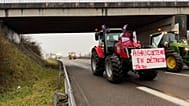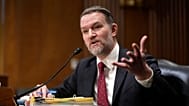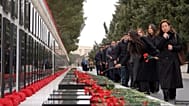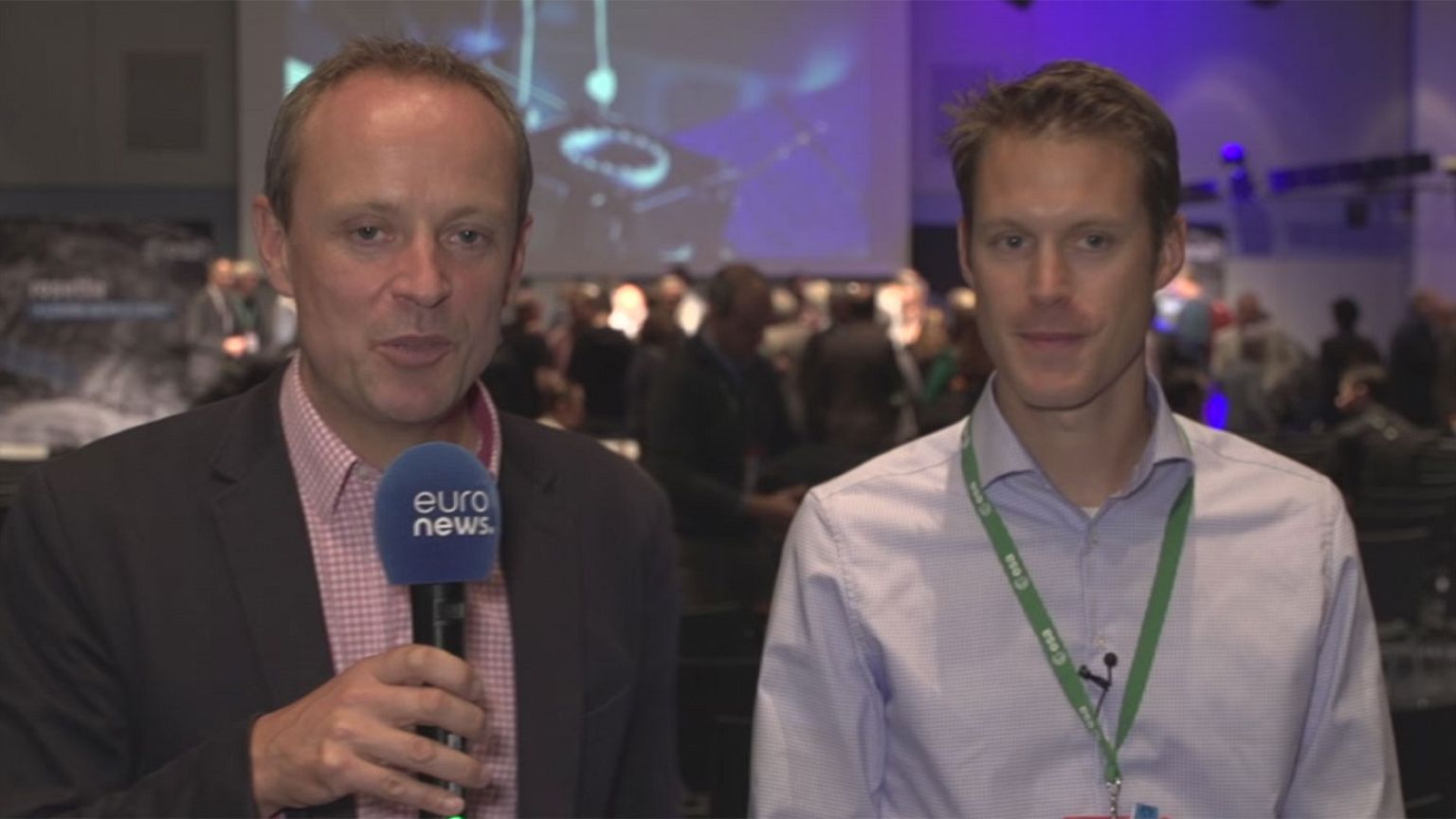A bittersweet day for the ESA as they celebrate the success of their comet mission after working together on the project for more than 30 years.
The European Space Agency says its Rosetta spacecraft has finally crash-landed on its comet.
Scientists at the control centre in Darmstadt clapped and hugged after screens showed the loss of signal when Rosetta touched down on the space rock, known as “67P/Churyumov-Gerasimenko”.
Euronews correspondent Jeremy Wilks met four of the key players behind the Rosetta adventure.
It's over!! ROSETTA is no more
— Jeremy Wilks (@WilksJeremy) September 30, 2016
Jeremy Wilks, Euronews:
“There we go, that’s the end, the Rosetta mission has ended. The spacecraft is now right down there on the surface of the comet, and it’s not coming back. I’m here with some of the people who have been behind this mission from the very beginning. So how do you feel, Matt Taylor now?
Just wow https://t.co/cCfrJ3rt14
— Matt Taylor (@mggtTaylor) September 30, 2016
Matt Taylor, Rosetta Project Scientist, ESA:
“It’s bittersweet today. We’ve lost something that’s sort of our life, we’ve lost a family member. But we know that we have all of the pieces of the puzzle to go forward and solve the mysteries of the solar system with Rosetta, which is what we were supposed to do. It’s about science, now let’s have that continue. But it’s still sad that we’ve lost a family member.”
Rosetta data is coming down live now, so the team is hard at work. #cometlanding https://t.co/or0V6Dv6mF
— Jeremy Wilks (@WilksJeremy) September 30, 2016
Jeremy Wilks:
“Just to your right is Mohammed Ramy El-Maarry, who is one of the team that works on those images, those fantastic images that we get of the surface of the comet. What’s going to happen now with all of this science that you’ve got?
#CometLanding: Mohamed Ramy El-Maarry
unibern</a> is analyzing the first close-up images of <a href="https://twitter.com/hashtag/Chury?src=hash">#Chury</a> <a href="https://twitter.com/ESA_Rosetta">ESA_Rosetta: http://t.co/FmObEgBdHk.— Universität Bern (@unibern) July 15, 2015
Mohamed Ramy El-Maarry, OSIRIS camera scientist, University of Bern
“Well, first of all we need to make sure that these images are to the best quality possible. It’s going to be very interesting for us, because we’re going to be able to look at these images and compare them, for example, with what we had for instance from the ROLIS camera that we had on the Philae lander while it was landing. It was very similar terrain but a different location. And we’ll be able to say something about the degree of homogeneity of this mobile dusty unit (he means the comet!).”
Animation of Rosetta's final hours #CometLanding pic.twitter.com/TpPdk2EY4z
— Jeremy Wilks (@WilksJeremy) September 27, 2016
Jeremy Wilks:
“Marvellous. And actually over here – I’m going to come back to you in a second – but over here we have the younger generation of the Rosetta experience, the big experience, and we’ve got the older generation, Roger-Maurice Bonnet, who was there right at the beginning. Tell us about the beginning of Rosetta.”
Roger-Maurice Bonnet nous parle avec émotion de la conception et du déroulement de la mission
ESA_Rosetta</a> <a href="https://twitter.com/hashtag/MerciRosetta?src=hash">#MerciRosetta</a> <a href="https://t.co/U3an7c0ua7">pic.twitter.com/U3an7c0ua7</a></p>— Jérémy Delorme (Jeremplk) September 30, 2016
Roger-Maurice Bonnet, Former Science Director at ESA:
“Well, this mission began with a call for ideas to the whole scientific community in 1983. In 1984, a mission called ‘comet nucleus sample return mission’ appeared on our table, which was either for an asteroid or a comet. It took ten years before we could really design the mission according to what Rosetta is today. I must say that, at the beginning, people were not very, very impressed by this idea of going to a comet. A comet is just a bit of rubble, why should we go there? When we see today all what we have learnt, it was worth the trouble and worth the dream!”
Seen on
euronews</a>: Rosetta heads for glorious crash-landing <a href="https://t.co/hF6UVmKYEq">https://t.co/hF6UVmKYEq</a> <a href="https://t.co/iWfxKBsKky">pic.twitter.com/iWfxKBsKky</a></p>— Jeremy Wilks (WilksJeremy) September 23, 2016
Jeremy Wilks
“And just to my left here is Koen Geurts, who was the person who was at the forefront of the whole Philae lander experience. What’s it like for you today?”
It's interview time; among others with Koen Geurts. We're proud of you! #CometLanding pic.twitter.com/ClWmgu3dFo
— Telespazio VEGA DE (@TelespazioVEGAD) September 30, 2016
Koen Geurts, Rosetta Philae Lander Technical Manager
“It’s strange. The last landing that I experienced was two years ago when Philae landed, very full of emotions and positive feelings. And now you know that people are happy, everyone is very pleased with the huge success of Rosetta but also sad that it’s ending now. The communication, the interactions with the colleagues on weekly basis, daily basis. So this is a strange day.”
*Jeremy Wilks”:
Well, thanks to everybody for joining me here at ESA’s operations centre in Darmstadt in Germany. The message coming out of this room is that the mission may be over, but the Rosetta science will continue for decades to come. I’m Jeremy Wilks, in Darmstadt, Germany, for Euronews. “















